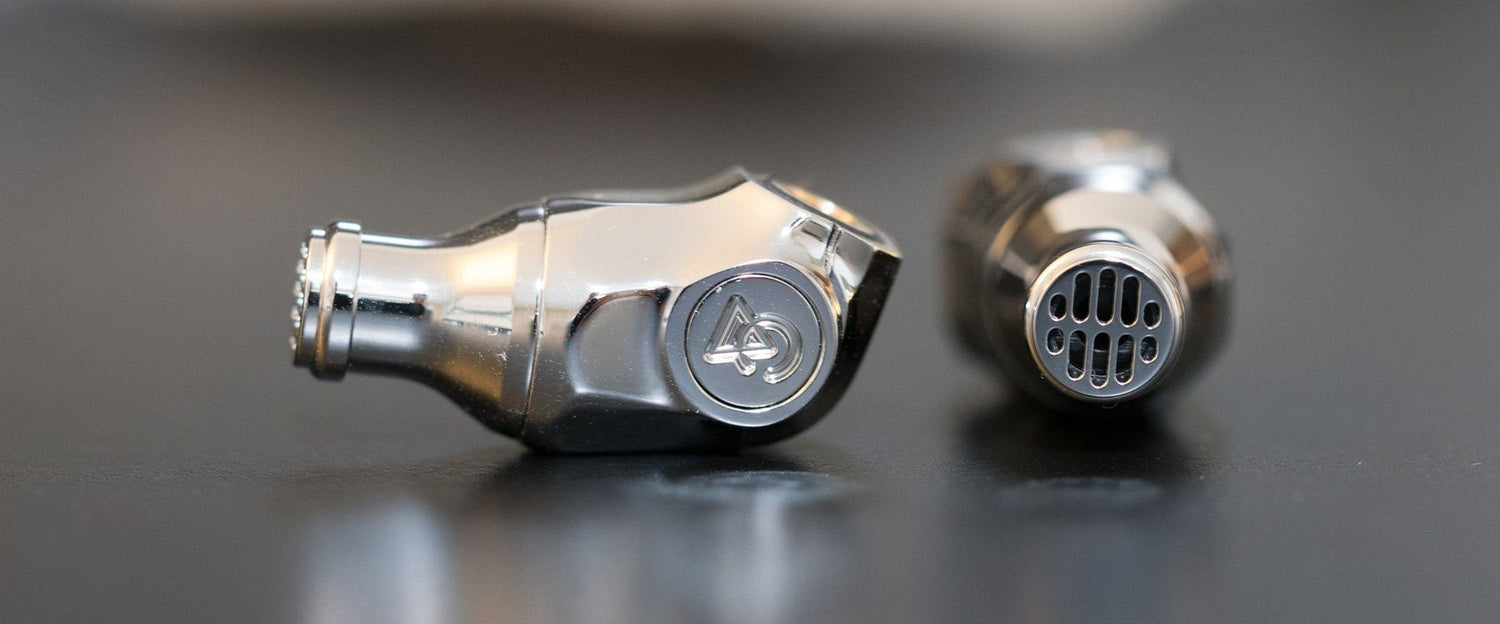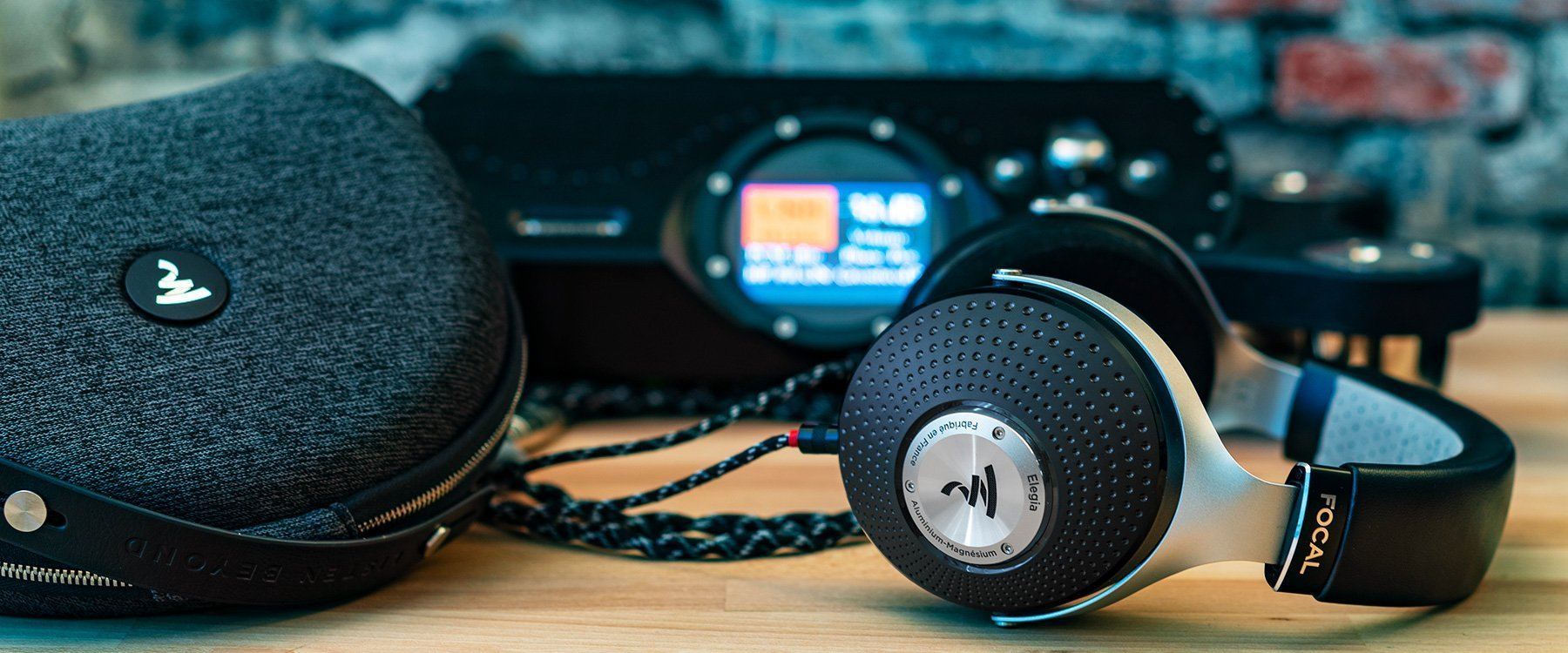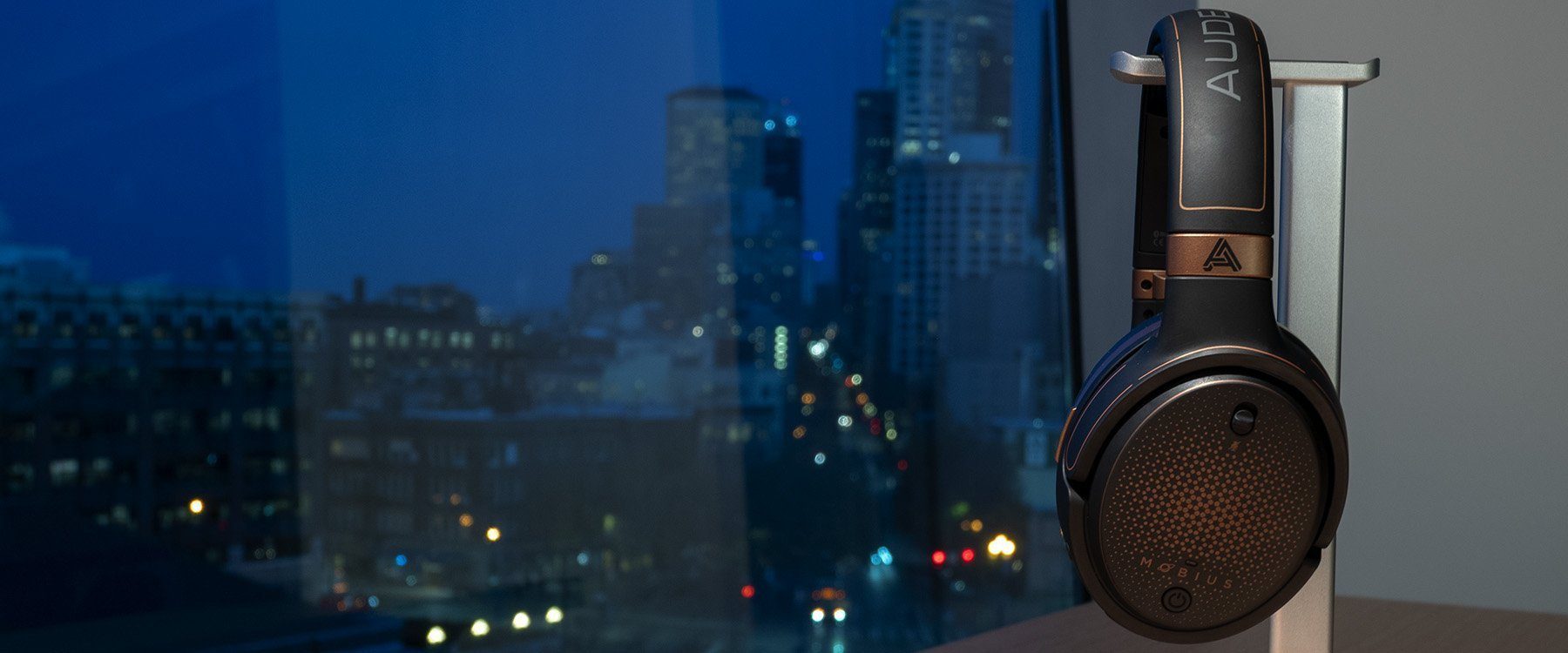Review written by Anthony Nguyen (@antdroid)
Introduction
The Comet is one of the newest additions to the acclaimed headphone line-up of the Portland-based Campfire Audio. It also happens to be their lowest priced, entry-level design. The Comet was introduced this past Spring alongside the dynamic driver-based Atlas and both sport a new flashy look and design.
The Campfire Comet is currently being sold at $199 at the time of writing this piece, and is priced significantly lower than other Campfire products which puts it right in line with other entry-level IEMs. This price point is a spot where people may look to when they feel they want to step up from the ultra-budget ear phones market.
The Comet features a single balanced armature (BA) driver that has been custom-tuned by Campfire. The vented housing also features the Campfire signature Tuned Acoustic Expansion Chamber. The Comet is measured at 48 Ohms @ 1kHz impedance and has a sensitivity of 97 dB SPL/mW, making it slightly harder to drive than many other IEMs out there.
About the Author
I have been listening to music since I was a little kid. Growing up, I used to create my own Top songs of the week and share it with my family and friends, creating mixtapes to go along with these lists. When I was in college, I started a music review website that had a staff of 8 writers covering a wide variety of genres and interviews.
I started down the headphone journey many years ago starting with a Grado SR80 and an iPod. As time went on, I’ve slowly grown my collection and experiences and currently enjoy a small collection of over-ear headphones, IEMs, and earbuds. I prefer a balanced neutral sound signature with a slight-lean towards brighter and more detailed headphones.
I had originally purchased the Campfire Comet when they were first announced and used them extensively for a couple months. Because of other hobbies and interests, I sold them and have been without a daily-use closed back IEM since. My primary IEM is the custom Unique Melody ME1 planar magnetic open-back.
As part of "The HEADPHONE Community" Preview Program, I was given an opportunity to re-visit the Campfire Comet again. This review is based on my experiences owning the Comet several months ago, as well as my current time having these on loan from Headphones.com through this great program.
Presentation & Accessories

The Comet comes in a small orange Campfire package that opens to a nicely designed black leather case. This case is zippered and opens up like a clam-shell. Inside of it, is each Comet, individually tucked away in neat gray pouches to protect the mirrored finish from scratches and prints.
The black-colored, copper-litz cable has a nice braided style to it and does include a mic control on the right channel. The cable is rather thin, but feels comfortable to use and wear. I did not test the mic/headset capabilities as part of this review.
Campfire packaged a series of different tips in this package. Each set come in the various size options available (small, medium, large). Tips included memory foam, silicone, Final Audio E tips, and SpinFit C100 tips. There’s plenty to choose from in this package, so finding something that fits you should not be too hard.
In addition, Campfire included a cleaning brush, a Campfire Audio pin, manual and warranty card.
Build Quality & Comfort
The Comet features an impressive mirrored look made of a stainless-steel housing that is spectacular to glean at, but is also a fingerprint magnet. The new design is different than the previous Campfire styling and allows users to wear the Comet (and Atlas) with cable down or over-ear. For me personally, I prefer wearing these down, something that is harder to find these days in the IEM marketplace.

Wearing it up, over-ear, presented some challenges for me. This was mostly due to getting a good fit since unlike IEMs that are designed to be worn exclusively upward, the Comets do not have angled nozzles to help guide you to the correct orientation and fit. Because of the smaller form-factor, getting them to stay in your ear can also be challenging.
After trying out many tips, I settled on using SpinFit tips or memory foam tips. They provided a good seal and fit. Speaking of seal, the Comet has above average isolation, similar to what one would find in the Final Audio ear phones such as the similarly shaped E2000 and E3000. If you get a good seal, these can do a very good job of blocking out external noise.
Sound & Music Listening
Gear & Sources
The Comet was reviewed primarily using CD-Quality FLAC files and Spotify (Very High Quality) streaming music on the Pioneer XDP-300R digital audio player. The use of the iFi IEMatch 2.5 was used in certain situations. The Comet was also used in conjunction with my desktop PC setup, which consists of Foobar Player and Spotify, attached to the Topping DX7 DAC/Amp as well as the Monolith Cavalli Liquid Spark headphone amp. In all desktop cases, the IEMatch was used.
Another thing to mention is that the review was tested using balanced output exclusively. For portable use, a custom 2.5mm balanced cable was used, and a 2.5mm to XLR adapter was used when paired with the DX7.
The following are examples of tracks used in listening sessions for this review:
- Vince Guaraldi – Live on the Air
- Olafur Arnalds – Re:member
- The Roots – Phrenology
- Tegan & Sara – Heartbreak
- U137 – Dreamer on the Run
- Cigarettes after Sex – Cigarettes After Sex
- Chris Stapleton – Traveler
- Fleetwood Mac – Rumors
- Common – Be
- Cocteau Twins – Heaven of Las Vegas

Measurement Disclaimers
The published measurements in this review were measured using EARS by miniDSP. This measurement rig is not industry standard, and should not be taken on its own. The tool is useful for comparison with other headphones, however it does have limitations.
General Listening Observations
The Campfire Comet has a tame U-shaped sound that is extremely relaxed and laid back and fits within the box. In general listening, I never found the Comets fatiguing and is an IEM I can find myself listening to for hours without any issues. It does lack some extension in the upper end, and its low sub-bass performance leaves a little to be desired, which is why I say it fits within the box. The Comet has a generally pleasing sound that will cater to many but does not have the excitement that makes you tap your feet with excitement, gleam for every last detail, or bob your head to the beat.

Bass
The Comet bass response is north of neutral, but does not sound exaggerated in any way. The slightly elevated bass provides a warm and enjoyable listen, and a small mid-bass hump starting around 100Hz helps gives a bit of punch to sounds that need it. Generally, music sounds full and weighty, but does occasionally get bloated as you increase volume, and this sometimes bleeds into the lower-mids.
Using Daft Punk’s “Doing It Right”, which emphasizes the bass and sub-bass with it’s killer beat, the Comet performs adequately. The weight of each drum beat sounds accurate, but I never felt the dynamics were on-par with higher end IEMs and over-ears. The sub-bass also sounds rolled off as the rumble I hear on other IEMs seems milder and tamer in comparison.
One thing that song doesn’t particularly address is mid-bass bleed since it’s a relatively simple song. On a song with a lot more instruments, sounds, and vocals, like The Roots’ Seed 2.0, there are passages where the heavy bass guitar loses its resolution and detail and sound a little overly emphasized and bloated. I never sense that it ruins Cody Chesnutt’s vocals but it sometimes does drown out Black Thought’s lyrics.
Mids
The mids are where the Comets are the strongest. The mids do dip and are slightly recessed, however I never felt male vocals were missing. Female vocals really shine with the Comets, as the U-shape does elevate the upper-mids. I never got the sense of sibilance or harshness in female vocals despite this.
A prime example of this is Cocteau Twin’s album title-track “Heaven or Las Vegas.” This Elizabeth Fraser-led song never presents any challenges to the Comets. Despite her ethereal vocals that stretch the upper-mids and lower-treble, I never felt any fatiguing from listening to this song or their entire album. The Comets sounded smooth throughout the mid-range.
Treble
One drawback of the Campfire Comet is that it does roll off after 10KHz. While in actual listening, I don’t have too many qualms about it, the Comet does sound more focused-sounding and does not have as much energy and presence to it as some of its competitors. There is a definite lack of air and clarity on some songs that would really benefit from it. Overall though, the treble region is tame but enjoyable. It never shrieks of harshness or brightness. It’s just about right, but lacking in the upper extension.
Soundstage & Imaging
The Comet presents music more focused and intimate. While male vocals are a shade recessed, female vocals will sound closer to the front and with a lack of deep extension on either side of the spectrum, the Comet does sound a little closed in.
Music plays well horizontally, left to right, but I felt the Comets were only adequate at music height and depth. At this price range, though, height isn’t something I’ve noticed many IEMs able to do well.

Comparisons
The following are some comparably priced IEMs that I have recently listened to and can share some quick relative comparisons to the Campfire Comet.
1More Quad Driver
The 1More Quad Driver is a V-shaped IEM that is extremely popular. It features a sound that is also geared towards many genres like the Comet, and features a metallic, intricate housing as well. The cable is non-detachable however and is quite springy, which isn’t ideal for something at the $199 price.
The Quad has a larger mid-bass hump, and more recessed mids than the Comet, which make the chance of mid-bass bloat and bleeding more likely on the Quads than the Comet. In general, I found the Quads more detailed than the Comet, with a larger soundstage but the Comet is generally more coherent and smoother.
BGVP DMG
BGVP is a relatively new Chinese headphone manufacturer who have really struck a sweet spot with the DMG, a 4-driver IEM with removable filter nozzles. The DMG has a more v-shaped sound signature than the Comet which provides deeper bass extension and a more airy, layered presentation. The DMG can sound bright and harsh to some people and some genres. The Comet never has this problem as it is more relaxed in the upper end, and is more forward in the mids.
The Comet has a more focused intimate sound which will emphasize vocals over the DMG, and will present a smooth transition between the mids to treble. The lower mids to bass transition is not as smooth for the Comet as the DMG, but both feature a mid-bass hump.

Tenhz P4 Pro
The P4 Pro is a new IEM by a new Chinese company, TenHz (formerly Audbos). The P4 Pro’s frequency response is very IEM Diffuse Field neutral. The Comet will have better bass impact and punch than the P4, while the P4 sounds better extended and detailed. Both are extremely smooth throughout the spectrum, while the P4 is more mid-forward and textured. The P4, while being more mid-forward sounds like congested than the Comet, however the P4 does not play well with volume and gets muddy and grainy with volume rise. The Comet, which has much lower distortion numbers, does not have this issue.

Campfire Orion
I only just received the Orion and have extremely limited listening hours with them. The Orion was previously the lowest priced Campfire IEM prior to the Comet. It’s priced at $349 which is nearly double that of the Comet, and in my limited time with it, I find the Orion stronger in every way. It extends higher which provides an airier presentation and has a larger soundstage. The coherency is improved as well as microdetails. But again, this is only based off of several hours of listening time and very short period of direct comparisons between the two.

Overall
The Campfire Comet is the lowest priced Campfire IEM and in my limited experience with Campfire products, I feel like it is a step down from their higher priced offerings. The Comet is priced in competition with many other IEMs in one of the most competitive sectors, below $200.
The Comet has a tame sound to it. Other IEMs may offer better bass extension or performance, and some may offer bright signatures or ones with more detail. The Comet does lose out to other IEMs in terms of detail and texturing and micro and macro-dynamics.
The Comet, in this case, plays it safe and presents a good presentation of sound that works with many genres and musical styles. It provided me a laid back, relaxing listen that is comfortable enough to wear for many hours at a time. Smooth would be the best way to describe the overall tonality of the Comet.

In addition, the included accessories and packaging materials that Campfire provide is top notch. The included case is excellent, and a large variety of tips including higher quality, higher end tips from Final Audio and SpinFit are included which, in addition to the fantastic build quality, materials and appearance, make the overall physical package better than its competition.
All of that said, I found the Comet a little too tame for my personal preference. I typically enjoy more details and textures in both the bass and upper register, and I found the Comet to lack that. I really did enjoy how the Comet presented vocals however, especially female vocals.
In the end, the Comet is good within the bounds. It doesn’t necessarily do any particular thing excitingly, and so giving it a title of Jack of All Trades and Master of None, isn’t far-fetched. It’s good for everything, but not great at any specific genre.
-Anthony Nguyen (@antdroid)
---
Join the discussion about the Campfire Audio Comet on "The HEADPHONE Community".
---
Buy the Campfire Audio Comet on Headphones.com here at the best price available.




Leave a comment
All comments are moderated before being published.
This site is protected by hCaptcha and the hCaptcha Privacy Policy and Terms of Service apply.